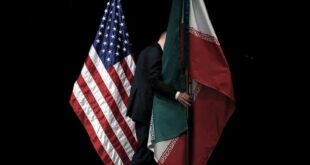CAMP DAVID — Afghan President Hamid Karzai and U.S. President George W Bush agreed that Pakistan must help quell deadly violence inside Afghanistan, but broke sharply on Iran’s influence there.
The two leaders, wrapping up two days of talks at the presidential retreat 112 kilometers outside Washington Monday, said they hoped for improved cooperation between Afghanistan and neighboring Pakistan after talks in Kabul that are due to start on Thursday.
And the White House warned that the two leaders had agreed that there would be no concessions to win the freedom of 21 South Korean hostages held by the Taliban Islamist militia driven from power in 2001 by U.S.-led forces.
One day after Karzai called the Islamic republic “a helper” against extremists, Bush blasted the government in Tehran as “not a force for good” and vowed to pursue efforts to isolate Iran over its suspect nuclear program.
“We will continue to work to isolate it because they’re not a force for good as far as we can see, they’re a destabilizing influence wherever they are,” Bush said at a joint news conference with Karzai, who did not mention Iran.
“I hope very much that this jirga will bring to us what we need, which I think it will,” said Karzai. “Our enemy is still there, defeated but still hiding in the mountains. And our duty is to complete the job.”
The US president said the assembly would focus on “how we can work together — how you can work together — to achieve common solutions to problems. And the main problem is to fight extremism.”
U.S. officials have been increasing pressure on Pakistani President Pervez Musharraf to crack down on Taliban extremists and al-Qaida terrorists targeting Karzai’s government from bases inside Pakistan’s remote tribal areas.
While the Taliban still pose a threat to Afghan civilians, Karzai insisted that the Islamic militant group, which was ousted from power in 2001, has been defeated.
“They are not posing any threat to the government of Afghanistan, they are not posing any threat to the institutions of Afghanistan, or to the build-up of institutions of Afghanistan,” he said.
“It’s a force that’s defeated; it’s a force that is frustrated; it’s a force that is acting in cowardice by killing children going to school.”
Karzai and Musharraf were due to address a meeting in Kabul Thursday of 700 tribal elders and other influential figures from both countries to try to find ways to address the insurgency.
Bush, sidestepping a question that has been roiling the 2008 race to succeed him, declined to spell out whether he would seek Pakistan’s permission to strike at extremists inside its borders if he had “actionable intelligence.”
“I’m confident that with actionable intelligence we will be able to bring top al-Qaida to justice,” he said. “We’re in constant communications with the Pakistan government.”
Pakistan has denounced U.S. warnings — including from Democratic presidential hopeful Barack Obama, but also from top Bush aides — of possible strikes at extremists inside its territory without permission.
Pakistan’s ambassador to the United States speaking on CNN news Monday stressed his country’s commitment to going after the Taliban in the tribal areas and the need for cooperation on the issue.
“We need to sit down like grown-ups, Pakistan, the U.S. and Afghanistan, and not blame each other,” he said. “We need to … be straight with each other. And that’s how we’re going to control and defeat extremism.”
Bush said Karzai had “rightly expressed his concerns about civilian casualties” stemming from U.S. or NATO strikes in Afghanistan, and that he had assured his guest “we do everything that we can to protect the innocent.”
“He is as much concerned as I am, as the Afghan people are. I was very happy with that conversation,” said Karzai, who in the past has been sharply critical of the civilian toll from operations against the Taliban Islamist militia.
The leaders did not publicly address the fate of South Korean hostages. The Taliban seized a group of 23 on July 19 and have slain two of them to try to force the Afghan government to release Taliban prisoners.
(AFP)
 Eurasia Press & News
Eurasia Press & News


